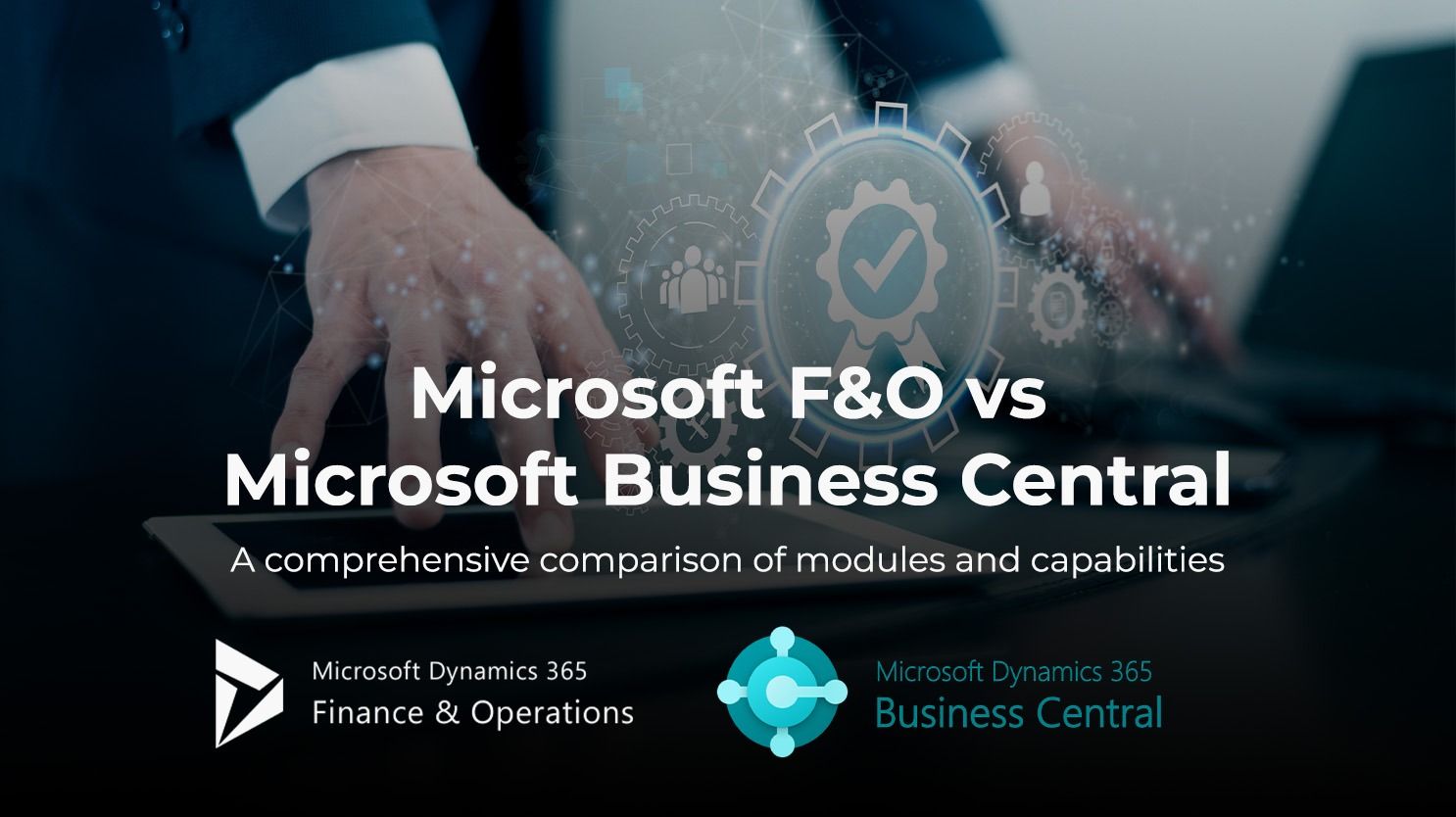Microsoft Dynamics 365 F&O vs. Business Central: Which ERP Fits Your Business?

When choosing an ERP system, one size doesn’t fit all. Microsoft offers two powerful solutions under the Dynamics 365 umbrella: Finance & Operations (F&O) and Business Central (BC).
While both are designed to streamline operations and boost productivity, they serve different types of businesses with varying needs.
At EDM, we often guide clients through this decision, helping them select the ERP solution that aligns with their size, structure, and operational complexity. Here's a breakdown of how F&O and BC compare across core business functions.
Financial Management: Depth vs. Simplicity
Both F&O and BC offer strong financial management features like:
- General ledger
- Accounts payable and receivable
- Bank reconciliation
- Fixed assets
- Multi-currency support
However, F&O takes it a step further with:
- Advanced financial dimensions
- Deeper automation for multi-company setups
- Robust consolidation and elimination tools—ideal for large enterprises operating across multiple legal entities
Additional features that you can find in F&O which are not available in BC:
- Built-in credit and collections management
- Asset management
For companies needing highly detailed financial control and reporting across geographies, F&O clearly leads.
Supply Chain & Inventory: Handling Complexity
Inventory and purchasing are supported in both systems, but F&O is built to manage more complex supply chain operations. It includes:
- Advanced warehouse management (WMS)
- Transportation management (TMS)
- Product information management (PIM)
- Support for trade agreements and landed cost calculation.
BC, on the other hand, is better suited for businesses with simpler logistics needs. It handles basic WMS and purchasing but lacks the advanced functionality required for large-scale distribution or manufacturing networks.
Retail and Vendor Collaboration
F&O stands out with modules dedicated to quality management, vendor collaboration, and retail and commerce integration. These features are especially beneficial for enterprises working with multiple suppliers or operating in B2C environments.
While Business Central can be extended with third-party solutions (such as LS Central for retail), it lacks these capabilities out-of-the-box—making F&O the better choice for businesses with complex vendor relationships and retail operations.
Manufacturing and Project Management
F&O is clearly built for advanced manufacturing environments. It includes:
- A Manufacturing Execution System (MES)
- Co-product and by-product management
- Lean manufacturing
- Advanced production scheduling
- More comprehensive Project management with full project accounting, budgeting, forecasting, and resource planning tools
BC supports basic manufacturing and project tracking, making it suitable for smaller companies or those with straightforward production processes. But for businesses with intricate shop floors or large-scale project needs, F&O provides the control and visibility required.
Human Resources and Payroll
This is one of the most noticeable differences. F&O includes:
- Core HR
- Global payroll configuration
- Employee self-service portal
- Mobile expense management—all built into the system.
In contrast, BC relies on third-party integrations for HR and payroll, which may lead to extra cost, effort, and limitations in functionality.
Organizations with growing teams, multiple locations, or global HR requirements will benefit significantly from F&O’s integrated HR module.
When to Choose F&O vs. BC
Choose Microsoft Dynamics 365 F&O if you’re a large or fast-growing enterprise with complex operations, multinational presence, or advanced manufacturing and HR needs. F&O is built for businesses that require high scalability, deep functionality, and complete control over their financials, supply chain, and human capital.
Choose Microsoft Dynamics 365 BC if you’re a small to mid-sized business with more standardized processes, looking for a cost-effective, easy-to-implement ERP system. BC offers simplicity, flexibility, and a faster go-live, making it a strong choice for businesses that don’t need advanced features.
What This Means for Your Business
Both solutions are powerful and part of the broader Microsoft ecosystem, allowing for integration with tools like Power BI, Microsoft 365, and Azure. The key lies in understanding your business needs today—and where you're headed tomorrow.
At EDM, we specialize in guiding businesses through this ERP journey. Whether you're deciding between F&O and BC, or simply exploring your options, our team of certified experts is here to help.
Let’s talk about what fits your growth. Contact us to book a free consultation or follow us on social media to stay up to date with our latest news.